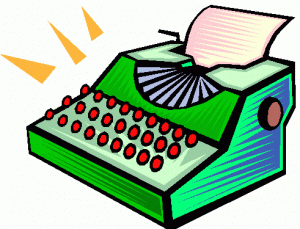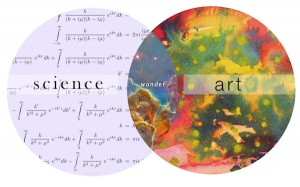by Naomi L. | March 30, 2015 | Blog, Word of the Week |
Word: maelstrom
Pronunciation: MAYL-strahm / MAYL-strəm
Part of Speech: noun
Definition:
- a powerful whirlpool in the sea or a river
- a situation or state of confused movement or violent turmoil
Source: Oxford Dictionaries
Have you ever been to Epcot at Walt Disney World? My family and I used to go there all the time when I was a kid, and the World Showcase was by far my favorite feature of the park. Each country pavilion had its own major attraction, and the one in Norway – before being closed in October 2014 for renovation into a Frozen-themed attraction – was a dark boat ride based on Norse legend, which for its many turns and drops was appropriately named “Maelstrom”.
A “maelstrom” is a sea or river whirlpool of tremendous power. As a metaphor, it indicates a state of great confusion or turmoil. The word is of modern Dutch origin, having arisen in the late 17th century to refer to a mythical whirlpool said to exist west of Norway in the Arctic Ocean. This noun is comprised of the verb malen “to grind” and the noun stroom “stream”.
I think my favorite thing about the word “maelstrom” is how foreign it sounds compared to the rest of my vocabulary. Most of the words I feature in my Word of the Week segment come from Latin or Greek, so it’s refreshing to learn a Germanic word from time to time. Coupled with its association with the ocean and its dual literal and metaphorical definitions, “maelstrom” may be one of the most interesting words I’ve come across yet! If you write tales of the sea or tend to put your characters through chaotic situations, you’re sure to find an excellent place for a “maelstrom” in your stories! Good luck!
What are your thoughts on this word? Any suggestions for future “Word of the Week” featured words?
by Naomi L. | March 27, 2015 | Flash Fiction, J.C. Wolfe's Writing |
“Check it out! I got one!”
“Lemme see, lemme see!”
“Careful! Don’t let it get away. You got the jar?”
“Right here.”
“Great. Here goes… Quick, shut the lid!”
“Wow, it’s glowing!”
“Look! Here’s another one!”
“And another one! I wanna try!”
“Steady… You got it! Put it in the jar with the others.”
“There’s so many!”
“I told ya, Ginny! Tons of ’em come out in summer!”
“But why? What are they, Tommy?”
“Oh, they’re, um… They’re stars.”
“Stars?”
“Yeah! Every summer, stars fall out of the sky and fly around the fields.”
“But why do they come here?”
“Because they’re, um… they’re looking for love. And there’s lots of it here.”
“There is?”
“Sure! I’ll show you. Close your eyes, Ginny.”
“Tommy! Did you just… kiss me?”
“…Yeah.”
“Does that mean…?”
“Maybe. What do you think?”
“I think… you should close your eyes too.”
“Ginny! So you…?”
“Yes, I do, Tommy.”
“Then I guess they got it right.”
“Me too. I think the stars picked the best place in the world to look for summer love.”
by Naomi L. | March 25, 2015 | Blog, Creative Writing |
Last week, I started a new series of posts on the overlap of my two favorite topics: art and science. After discussing the similarities and differences between artistic and scientific reading, today I’d like to talk about the next major aspect of this creative intersection: writing. How do art and science compare when it comes to composition? Let’s explore!
How the Art is like the Science
When thinking about what art and science have in common, one of the first similarities to come to mind is the written word. Ideas of any kind are often best communicated through writing, so it’s important to know how to convey one’s thoughts as eloquently as possible. As I previously mentioned about reading, our minds have learned to make sense of prose through a set order, and writers of fiction and non-fiction alike must respect that order if their work is to be understood.
Whether we write artistically or scientifically, we have to know how to grab our readers and hold their interest throughout a given work. A good title will attract an audience that shares our interests. The introductory portion establishes our style and the main idea of the whole piece. We must include a clear objective and the promise of action by the middle of the work, and that action must lead to a resolution of conflict by its conclusion. In art and science alike, everything we write must somehow tie together in the end.
Much like reading, writing is fundamentally the same whether it’s done artistically or scientifically. Yet art and science also differ greatly, and in my opinion, nowhere do these disparities shine brighter than in their composition.
How the Art is unlike the Science
When we write artistically, we have all the freedom in the world to experiment with words and ideas to turn out an interesting piece. We can write about anything from magic and myth to true events in history. We can start in the middle and halfway through jump back to the beginning. We can elaborate on the tiniest details or leave everything but plot up to the reader’s imagination. We can write themes and endings that are either thoroughly conclusive or open to interpretation. The possibilities are endless.
 The same freedoms generally don’t apply to science, however. Because academic papers all have to be comprehensible in the same manner, they come with strict rules and guidelines for how to write them. That isn’t to say that we can’t be creative at all, of course; just that there are far more restrictions to work with than in artistic writing. We’re more than welcome – even encouraged – to demonstrate creative thinking, as long as it’s presented with a title, an abstract, an introduction, materials and methods, results, a discussion, and a conclusion. When the point is to convey our ideas as clearly as possible, organization is key.
The same freedoms generally don’t apply to science, however. Because academic papers all have to be comprehensible in the same manner, they come with strict rules and guidelines for how to write them. That isn’t to say that we can’t be creative at all, of course; just that there are far more restrictions to work with than in artistic writing. We’re more than welcome – even encouraged – to demonstrate creative thinking, as long as it’s presented with a title, an abstract, an introduction, materials and methods, results, a discussion, and a conclusion. When the point is to convey our ideas as clearly as possible, organization is key.
Writing prose is both an art and a science at its core, so it’s up to the writer to master the balance between these approaches and know how to make the most of their individual strengths to turn out truly creative works. And that is exactly what I love about creative writing: it appeals to both the artist and the scientist in me! I sincerely hope you can appreciate this beautiful intersection of art and science as much as I do! Thanks for reading!
by Naomi L. | March 23, 2015 | Blog, Word of the Week |
Word: surreptitious
Pronunciation: sə-rəp-TI-shəs
Part of Speech: adjective
Definition: kept secret, especially because it would not be approved of
Source: Oxford Dictionaries
“Surreptitious” is one of those words that I loved from the moment I first heard it just for the way it sounds. There’s something about it that rolls nicely off the tongue, or at least off mine. Of course, when I learned what the word means, that made me love it even more. I do enjoy discovering words related to secrets.
A “surreptitious” activity is one that is carried out in secret, usually because it would be frowned upon by those who would otherwise be aware of it. The word comes from the Latin adjective surreptitius “concealed”, which in turn is derived from the verb surripere, meaning “to steal” or “to take away secretly”. This verb is comprised of the preposition sub “under” and the verb rapere “to seize”.
I rarely use the word “surreptitious” myself, but when I do, I make sure it fits perfectly not just with the present context, but with the overall theme of the story. For example, the last time I used it was in a story about the Romeo-and-Juliet-esque forbidden love between two teenagers, in which it was used to describe the main characters’ secret affair. I feel like the word carries an air of deep mystery to it, so I would highly recommend it for works with such themes. If you enjoy writing mysteries or secret affairs, a “surreptitious” event is certain to fit into your stories! Have fun!
What are your thoughts on this word? Any suggestions for future “Word of the Week” featured words?
by Naomi L. | March 20, 2015 | J.C. Wolfe's Writing, Poetry |
See me smile at you
Gaze deeply into my eyes
Show me your passion
Hear me breathe a sigh
Listen to my racing heart
Whisper in my ear
Smell my sweet perfume
Bury your face in my neck
Breathe in every scent
Taste my trembling lips
Feel my breath mingle with yours
Say you love me too
Touch me all over
Hold me in your arms tonight
Take me to Heaven


 The same freedoms generally don’t apply to science, however. Because academic papers all have to be comprehensible in the same manner, they come with strict rules and guidelines for how to write them. That isn’t to say that we can’t be creative at all, of course; just that there are far more restrictions to work with than in artistic writing. We’re more than welcome – even encouraged – to demonstrate creative thinking, as long as it’s presented with a title, an abstract, an introduction, materials and methods, results, a discussion, and a conclusion. When the point is to convey our ideas as clearly as possible, organization is key.
The same freedoms generally don’t apply to science, however. Because academic papers all have to be comprehensible in the same manner, they come with strict rules and guidelines for how to write them. That isn’t to say that we can’t be creative at all, of course; just that there are far more restrictions to work with than in artistic writing. We’re more than welcome – even encouraged – to demonstrate creative thinking, as long as it’s presented with a title, an abstract, an introduction, materials and methods, results, a discussion, and a conclusion. When the point is to convey our ideas as clearly as possible, organization is key.
Recent Comments